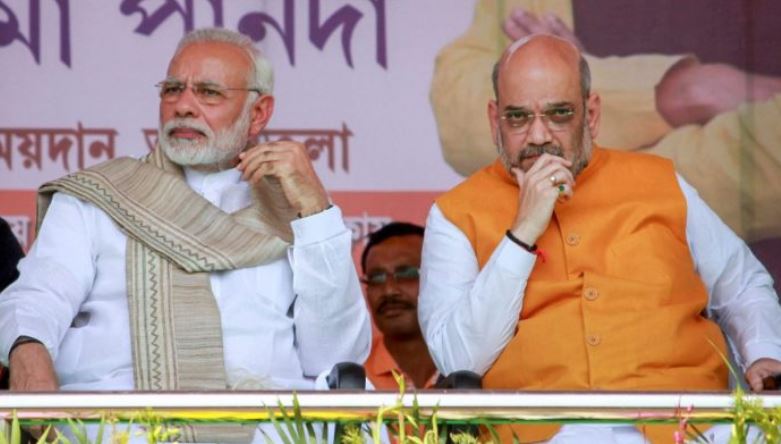
J'khand rout should teach BJP to choose between Shah 'neeti,' real issues
The Jharkhand loss for the BJP is significant because it comes bang in the middle of countrywide protests against the changes in citizenship law. The BJP has lost in spite of the prime minister’s attempt to monetise the controversial law during the campaign in Jharkhand, and his crass remarks on the identity of protesters.

Diversion and division of work only so much in politics. Beyond a point, only good governance can deliver the desired results in an election. The BJP did not learn this lesson in Haryana and Maharashtra, but let’s hope the loss in Jharkhand will make it stop and introspect.
The Jharkhand results come at the end of four months of turbulence and disruptions in Indian politics. Since August, the BJP has stripped Kashmir of its special status, fastracked its Hindutva project by amending the citizenship law and proposing a national register of citizens throughout India. Yet, it has lost Jharkhand.
The Jharkhand loss is significant because it comes bang in the middle of countrywide protests against the changes in citizenship law. The BJP has lost in spite of the prime minister’s attempt to monetise the controversial law during the campaign in Jharkhand, and his crass remarks on the identity of protesters. What does this loss tell us?
The broader message of the defeat is that voters have made a clear demarcation between the prime minister’s image and the performance of BJP governments. Unlike in 2013-2014, when the BJP was winning state after state just on the basis of Narendra Modi’s charisma, the party is finding it difficult to win in places where it has floundered on the governance front. This segregation between the BJP and the prime minister started in 2018 in Rajasthan, Madhya Pradesh and Chhattisgarh. Twelve months later, the booting out of BJP’s non-performing assets continues.
In fact, this string of losses tells us that the BJP would have struggled even in the Lok Sabha elections but for a black swan event—the terror attack in Pulwama and its aftermath. Till these two events changed the course of Indian polity, every opinion poll was predicting just around 210 seats (of the 542 Lok Sabha seats) for the BJP. But, the anger over Pulwama and the euphoria about Balakot helped the BJP win at least a 100 more seats in the Hindi belt.
The BJP obviously misread the Lok Sabha verdict and got into the Amit Shah mode of governance when it should have focussed on rural distress, generating jobs and reviving growth. But, it is gradually realising that both Shah and his politics (hailed as Chanakya neeti) are grossly overrated. This is visible in the BJP’s shrinking footprint—from the high of ruling two-third of the states, it is now down to just about a third of India. And even this expanse includes states like Karnataka, Goa and regions in the Northeast where it has formed governments through subterfuge and defections.
The BJP has two choices now. It can either continue ruling through the Shah model or start talking about the real issues. The dangers of pursuing an ideological agenda are apparent, especially in a milieu where a large number of Indians — even if not electorally significant so far—are ready to push the government back. It will deepen the existing faultlines, create chaos and a sense of being perennially in confrontation. In the end, voters will tire of it and vote the BJP out, even at the Centre.
But, the suspicion is that since it has committed itself to the Hindutva project the BJP would find it difficult to step back. With its eyes on West Bengal and Bihar, where the communal card can work in its favour because of the demographic mix, the BJP would continue its divisive politics.
The BJP can, of course, learn from the man who is going to soon hand over another electoral defeat to it—Arvind Kejriwal. Just a few months ago, Kejriwal appeared to be down and out, but recent opinion polls are suggesting high levels of satisfaction among voters with his governance. Opinion on the ground shows he has delivered on health, education and other real-life issues without resorting to bullying or communal politics.
The election in Delhi—a microcosm of India—would, in fact, be a referendum on the two models of governance people have seen over the past few months—development and cooperation vs division and confrontation. In all likelihood, the Shah model will get battered by the Kejriwal government. If Jharkhand and Haryana do not make the BJP rethink its strategy, Delhi certainly will. But, by then it would be too late.


